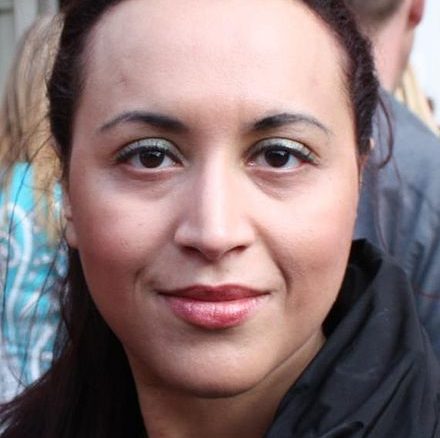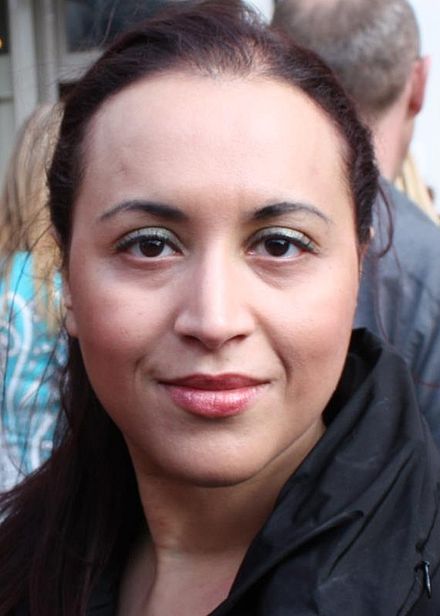
On August 7, Moroccan-Dutch author Naima El Bezaz took her own life. She was 46:

El Bezaz, the author of several best-selling books, was born in Meknes in 1974 and emigrated to The Netherlands with her family when she was four years old. She left university to focus on her writing.
Her most popular works included the best-selling and prize-winning novel De weg naar het noorden (The Road to the North, 1995), which was published when she was just 21, and her best-selling short-story collection Minnares van de duivel (The Devil’s Mistress, 2002).
She was also known for her novel De verstotene (The Outcast, 2006), which directly criticized religious teachings, and for the semi-autobiographical work, Het Gelukssyndroom (The Happiness Syndrome, 2008), in which she wrote about her struggles with depression.
But it was her novel Vinexvrouwen (Vinex Women, 2010) — a ruthless examination of the lives of the suburban women of Vinexwijk — that was perhaps her best-known work.
Although no full-length work of El Bezaz’s has appeared in English translation, an excerpt of The Happiness Syndrome appeared in Issue 35 of Banipal, translated by Susan Ridder. Naima El Bezaz’s short piece “Taboo,” also appeared in Stinging Fly, translated from the Dutch by Michael O’Loughlin. According to reviewer Mary Florio:
Naima El Bezaz’s short piece “Taboo,” as translated from the Dutch by Michael O’Loughlin, is funny and heartbreaking at once. We have lovely meditations on exile—“What kept them going was the dream of return”—along with a shocking plot twist that distinguished the effort as entirely masterful:
I stared at her, speechless. There was no stopping her. It all came out . . . she missed her mother. She missed the Moroccan soil from which she had sprung. She was afraid of the community which was always judging her. She wasn’t free and didn’t know how to protect her children. Her tears were louder than mine.
El Bezaz’s narrator navigates the unsightly tar of depression with an incredible ability to look beyond her own sadness and find healing for a parent who had initially sought emotional redemption through a folk spiritualist. El Bezaz’s voice is resilient and exceptional, looking out.
No translation of El Bezaz’s work has appeared in Arabic, either. Moroccan novelist Mohammed Said Hjiouij writes, “The third (also the second) Moroccan generation in the Netherlands has begun to innovate in the fields of culture. Unfortunately, these innovations remain trapped in the Dutch language.”
According to Jasper Harman, writing in Morocco World News:
El Bezaz’s witty but fierce and confrontational style was exemplified by her appearance at the 2003 Cairo Literary Festival. A translator refused to introduce her by her last name, as it resembled the Egyptian Arabic word for breasts, and instead introduced her as Naima El Khalid.
After her introduction, she told the crowd, “Ladies and gentlemen, I was just introduced as Naima El Khalid, but that is not my last name.”
As the crowd fell silent, she continued: “My name is El Bezaz, I know that means ‘breasts’ here, but I don’t care. It is my name, and I am proud of it,” she stated to a round of applause.
Also read:
Remembering Naima El Bezaz’s Taboo-Shattering Literary Legacy
An excerpt from The Happiness Syndrome, tr. Susan Ridder, in Banipal 35: Writing in Dutch
Click HERE to read more from this author.
You can publish this article on your website as long as you provide a link back to this page.

Be the first to comment